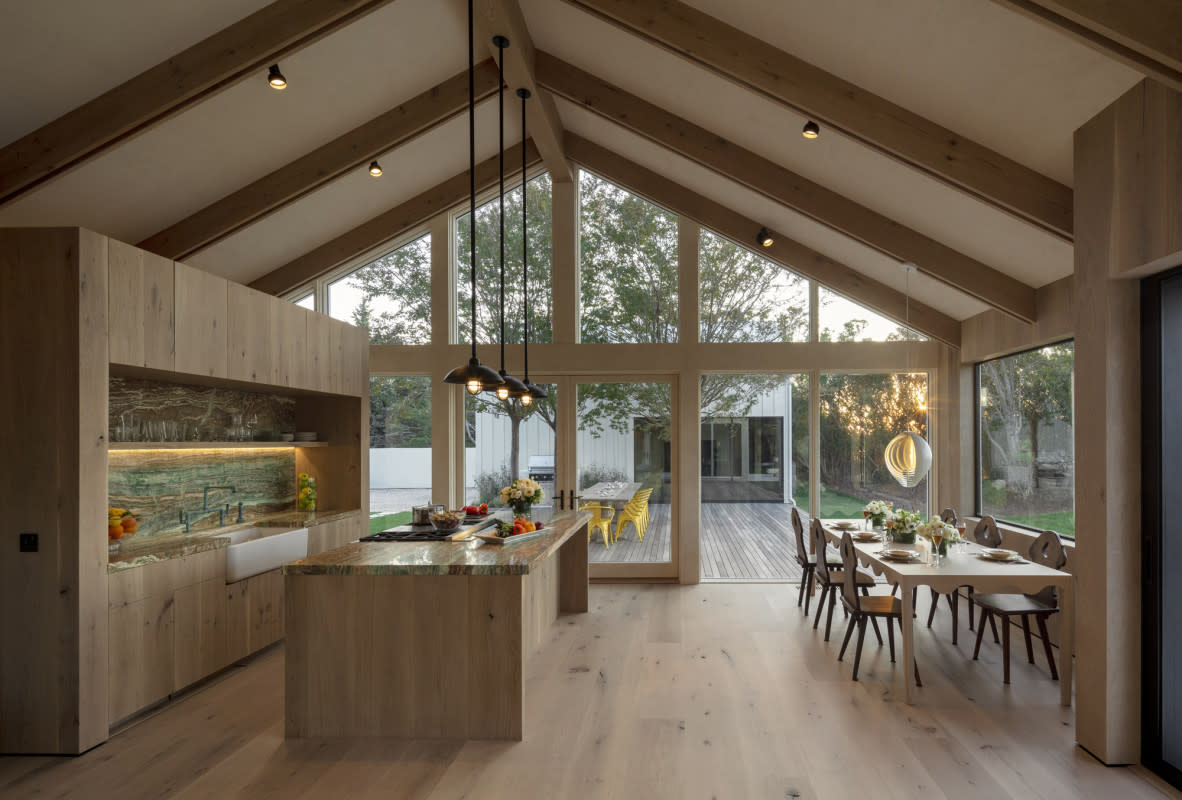Upgrade Your Home’s Heating and Cooling System to Geothermal

Forget the days of separate furnaces and AC units hogging space and energy. Geothermal heating and cooling systems are transforming homes and communities across the country, delivering a one-stop solution for year-round comfort and environmental responsibility.
Understanding Geothermal
Geothermal systems are an eco-friendly, infinite energy source that tap into the Earth's constant ground temperature, using a heat pump to extract warmth in winter and expel temperatures cooler than the air in summer. It does this all while dramatically reducing your carbon footprint. Here's why geothermal energy is making waves:
Performs double duty. Geothermal handles both heating and cooling needs, streamlining your home's climate control, helping you to maintain a constant temperature (even in cold climates), and freeing up valuable space. "The geothermal system uses thermal energy (heat) from the ground to heat the home in the winter, and the system removes thermal energy from the home and diffuses it into the ground in the summer," expands Kathy Hannun, Founder & President, Dandelion Energy.
Efficient heating = energy savings. Harnessing Earth's natural temperature significantly reduces reliance on fossil fuels, and any energy efficient system will positively impact your energy bills.
Environmentally-friendly. Say goodbye to greenhouse gas emissions! The environmental benefits set these systems apart. Geothermal technologies operate cleanly and sustainably, minimizing your impact on the planet while keeping your home cozy. Closed loop systems circulate a mixture of water and antifreeze solution within a sealed underground pipe network, ensuring no water contamination and minimal environmental impact. Open-loop systems use groundwater, offering slightly higher efficiency but requiring careful permitting and disposal due to potential mineral build-up.
Low-maintenance. Unlike furnace filters and AC coils, geothermal loops requires minimal maintenance. "Because the ground loop of pipes are inert, long-lasting plastic, underground pipes are protected from the elements. They shouldn’t require any maintenance," shares Hannun. "In fact, the ground loops in the systems we [Dandelion Geothermal] install are warrantied for 50 years. The geothermal heat pump system inside the house will require a similar amount of maintenance to a refrigerator."
Long-term investment despite upfront costs. While the initial installation cost might be higher, geothermal systems offer a substantial lifespan, significantly longer than traditional units, making them a cost-effective choice in the long run.
Related: Trying to Save Money on Heating Costs? Try This
How to Calculate Savings on Energy Bills
Let's start by pointing out that many, many factors contribute to cost savings when you switch to this form of renewable energy. Be sure to take a close look based on your property, home, and system:
"Projected savings can be calculated by first understanding what’s being spent on traditional heating and cooling today, including any heating fuels such as natural gas, propane or fuel oil, and any electricity used for air conditioning, and then estimating how much it would cost to run a geothermal system instead," advises Hannun. "A homeowner may need to consult with a geothermal professional to get a savings estimate accurate for their particular home. That said, using a geothermal system generally costs about half as much as an air conditioner and 30-60% less than a conventional heating system."
Savings is based on a few factors including:
How much geothermal cooling and heating does the home require? This is a function of the weather in the area, the size of the home, the desired air temperature, and how well-insulated it is.
What is the price of electricity? Your geothermal heat pump will run on electricity, and pricing can vary by region.
How efficient is the specific geothermal heat pump being installed? They typically run at approximately 400-percent efficiency. The efficiency rating is over 100% because they use electrical energy to move energy from the ground into the home, meaning, for every unit of electricity used, you typically get about 4 geothermal units of useful heat energy.
Related: Leaf Home Predicts 2024 Trend in Home Water Filtration Systems

